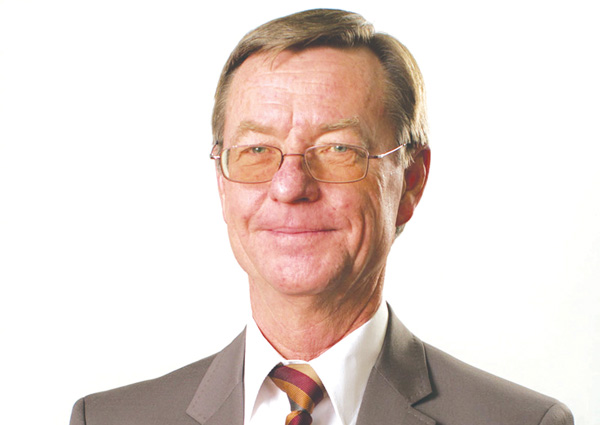
How will the new US president impact global financial markets?

The US elections during October were undoubtedly the most important news event of the last quarter of 2016. Hillary Clinton was credited with a handsome lead over Donald Trump until the day before the elections by the main stream media. Was this based on objective opinion polls or was it just a premeditated campaign against a candidate that is not part of the political establishment in the US? Hillary Clinton of course is firmly entrenched in the political establishment as wife of a former president and as former Secretary of State during President Obama’s first term of office. So these media have clearly betrayed their own bias for the political establishment and cannot lay any claim to independent reporting. I guess these media will quickly sweep this under the carpet and will want the public to quickly forget about their biased reporting.
The fact that president elect Trump is ostensibly not part of the political establishment has raised the hopes, and fears, of many that the US will experience nothing short of a political and economic revolution under his leadership, hopes of those who want to see a change from the past, fears of those who prefer to have the status quo maintained.
Uncertainty of course is not good for financial markets and causes volatility. Analysts are trying to forecast what the consequences might be of the policies they think the new president will adopt or he promoted during the course of the election campaign. If the new presidency proves to be a political and economic revolution, there will be winners and losers and you will not want to be betting on the wrong horse in terms of your investment decisions. So how should you respond to this situation?
Well, I do not believe that the new presidency will deliver an economic or political revolution at all. America is not the president and the president is not America. America is a political and economic system that has been purposefully driving its goals over the past hundred years and more! And it has been quite successful to date in its single minded endeavours to achieve global political and economic hegemony. Witness the sanctions Europe slapped on Russia at the behest of the US against its own economic interests but in accord with the US’ political interests, or the sanctions against Iran, the war against the Taliban, Muammar al-Qaddafi and so on and so forth. Mr Trump has been allowed to run for president but he will not be allowed to derail the long harbored dream of being the global power supreme. To former president Bush it was black or white, no in-between. You were either for or against the US – being neutral was not an option.
Having said this, some nuances of a president Trump may be different to those of his predecessors but none will change the course of history in the US’ definition. The US’ drive for total global hegemony remains in place. The only real threat to this goal is China and then there are some ‘nuisance factors’, such as Russia, perhaps now the Philippines under its president Duterte, Venezuela under president Maduro and Turkey under president Erdogan who are all facing their own challenges at home – home grown or fomented? China is currently in no position to challenge the US either economically or militarily and Russia as it Achilles heel may not be able to sustain its resistance to US domination for too long. Should that happen, China will really be hard pressed not to succumb to US hegemony.
So the long and the short, in my view is that we will not see any dramatic changes that could impact global economies or investment markets. While the economically disenfranchised majority of the global population may have yearned for a more just, more peaceful more honest and more transparent democratic world order, I am afraid the world will continue in the good old tradition of deceit, dishonesty, force and violence to control and dominate.
On that basis I do not see significant changes in the economic and financial environment. The rebalancing of global investment flows has commenced, years later that I would have expected. The consequences will be as expected though. Developing countries and in particular, commodity based economies such as ours and SA’s have benefited greatly from the loose monetary policies pursued by the US with massive in-flows of investment capital and a significant strengthening of the Rand. This will unwind now and we are seeing massive reverse flows of investment capital. Over the past 12 months, R 120 billion left the SA equity market. Since February the equity market experienced only negative monthly flows. Although foreign bond purchases were still mildly positive with a 12 month inflow of R 50 billion to end October, the month of October experienced a net outflow of R 10 billion. Local equity markets were boosted by foreign equity purchases while interest rates were lowered by foreign purchases. This will fade away and we will see interest rates on an incline while our equity markets are likely to move sideways.
The US economy is on an upward trail and there is a chance that a different economic policy of the new US administration may boost the US economy further. It would actually make sense if the US diverted resources from the maintenance of its war endeavours to developing its infrastructure. This should have a positive spin-off for the global economy in general and for our economy more specifically, in the medium term. Resources in particular may benefit from a new economic policy in the US.
Conclusion
In this scenario of increasing interest rates our currencies remaining under pressure and slowly improving global economic fundamentals, equities remain our preferred asset class. Spread the risk as widely as you can across the world but stay out of politically exposed areas, referred to above as the ‘nuisance factors’. Your biggest assets are in Namibia in all probability, and you have no choice of moving these elsewhere. Discretionary capital that you can move you should consider investing outside Namibia for the sake of spreading risk. Any money transfer off-shore should be spread over time for the benefit of Rand cost averaging to limit the currency risk. We also remain of the opinion that an investment in equities should be undertaken on a very cautious and selective basis. The emphasis should be on quality companies generating high cash flows and high yields on your investment with the prospect of high dividends yields. This is really what you need at the end of the day to survive.
Rand hedge shares not only protect against a weakening currency, they also provide a further diversification into foreign economies. Export orientated companies and the tourism sector should also benefit from a weakening Rand. Increasing interest rates will put pressure on the local consumer and on local banks and companies dependent on the local consumer.
Download the full Benchtest performance review for October 2016 at www.rfsol.com.na/benchmark
Download the complete Benchtest fund investment overview at http://www.rfsol.com.na/benchmark










































